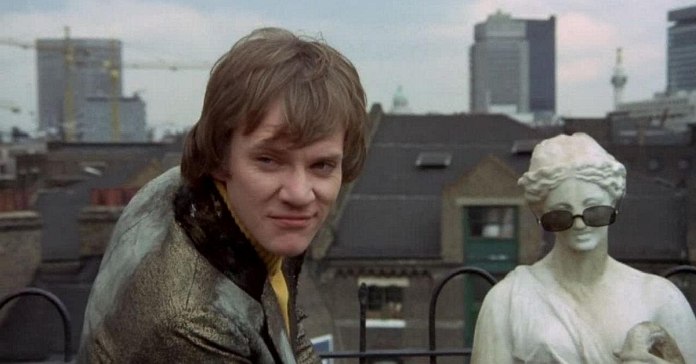
Successful actors often become closely associated with certain roles that either marked the peak of their careers or launched them into stardom. However, there exists a mysterious realm between box office hits and complete flops, where an actor’s hidden gems reside. These films may have been overlooked upon their release, but they still manage to maintain a dedicated fan base, sometimes even leading to unexpected sequels being made.
For actors, revisiting a character in a sequel can be an exciting adventure. The passage of time and changes in the plot may require them to undergo thrilling transformations, or in some cases, they may even take on an entirely new persona. This list showcases some well-known actors and the captivating franchises they have been a part of. Join in the exploration and discover the hidden treasures that deserve a chance to captivate a wider audience.
1. Michael Caine: The Harry Palmer Franchise

After his breakthrough in Zulu, Michael Caine got the opportunity to play the lead role in the Harry Palmer film series, which was based on the spy novels by Len Deighton. The first film in the series, The Ipcress File, follows the story of Palmer, a former criminal who now works for the Ministry of Defense. He is tasked with infiltrating a case involving brainwashing espionage, but he feels undervalued and openly shows his contempt towards his superiors. Caine’s portrayal of Palmer reflects the unique characteristics of the British swinging ’60s era – a relatable antihero with glasses, a troubled past, a South London accent, and a clear disdain for authority. In other words, the complete opposite of James Bond.
In the subsequent films of the 1960s, Funeral in Berlin and Billion Dollar Brain, as well as the made-for-TV movies Bullet to Beijing and Midnight in Saint Petersburg released in the mid-90s, Palmer finds himself entangled in Cold War or Cold War-related plots, playing the roles of both a spy and a private investigator. While The Ipcress File is widely considered the most impressive film in the franchise and a timeless classic, Caine’s unique appeal shines through in each sequel.
2. Christopher Walken: The ‘Prophecy’ Franchise

In The Prophecy, the angels sported long hair and flowing coats, resembling dark wave musicians from a decade earlier. A dark soul is required to initiate a predicted war, which subsequently attracts the attention of law enforcement. Interestingly enough, the detective assigned to the case, who was once destined to become a priest, possesses enough knowledge of the Bible to track down the Archangel Gabriel, portrayed by the raven-haired Christopher Walken.
At this stage of his career, Walken had already amassed enough star power to endure both exceptional and mediocre films. Alongside co-stars Eric Stoltz and Amanda Plummer, who had recently appeared in Pulp Fiction, Walken delves into the realm of fantasy horror presented in the original The Prophecy. In The Prophecy II, our former seminary dropout-turned-cop has transformed into a monk, while in Prophecy 3: The Ascent, Gabriel resigns from his position as an archangel to wander the mortal world in a manner reminiscent of Walken’s own persona. The franchise experienced enough success to warrant two more sequels, although Walken was absent from them.
3. Jet Li: The ‘Once Upon a Time in China’ Franchise

The Once Upon a Time in China series, created by Tsui Hark, was a game-changer for Hong Kong filmmaking. It took place in the late 19th and early 20th centuries and brought together epic production values and groundbreaking martial arts choreography, setting it apart from other films in Second Wave Hong Kong cinema. This series opened up new opportunities for Jet Li, a former national Wushu champion, who had been a martial arts film star in China since his late teens. Li was able to make a name for himself in Hollywood with films like Lethal Weapon 4 and Romeo Must Die.
In Once Upon a Time in China, Li portrays the legendary Wong Fei-hung, a master of Shaolin Kung Fu and a skilled physician. Wong’s character inspired countless Chinese films, and throughout the series, he takes on various challenges. He fights against human trafficking to America, resists the encroachment of Western power and culture, plays a role in the revolution during the final years of imperial Chinese rule, and defends Chinese migrants in San Francisco.
Li’s portrayal of Wong Fei-hung is truly remarkable. He brings a sense of strength and determination to the character, without relying on theatrics. His martial arts style is fast-paced and efficient, and he strikes the perfect balance between being a strong leading man and having a hint of menace.
The Once Upon a Time in China series, including its sequels and the TV series, Wong is played by Vincent Zhao, and the final installment, Once Upon a Time in China and America, serves as a poignant farewell to an era of Chinese history that will never be forgotten.
4. Chow Yun-Fat: The ‘A Better Tomorrow’ Franchise
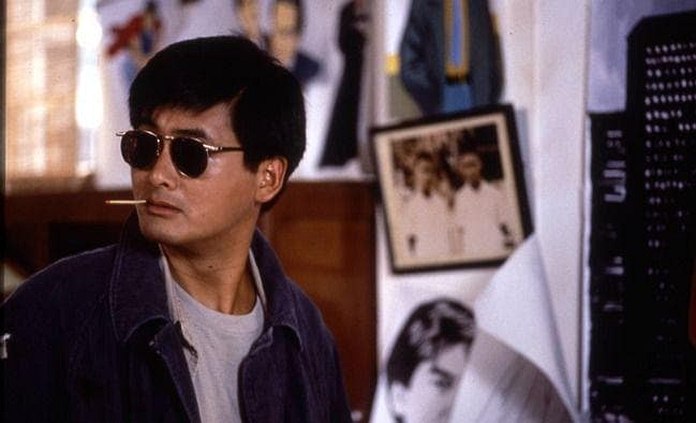
A Better Tomorrow, despite being made on a limited budget, achieved remarkable success, becoming the highest-grossing Hong Kong film of its time. This film not only catapulted director John Woo and actor Chow Yun-fat to international fame, but also birthed a fresh subgenre of crime thrillers. Woo’s expert direction breathed new life into familiar plot scenarios, creating a truly unique experience for viewers.
The story revolves around two brothers with contrasting occupations: one is a triad member involved in counterfeit money, while the other is a rookie police officer. Their familial bonds are put to the test when an ill-fated One Last Job goes awry, resulting in devastating consequences.
Chow Yun-fat, initially in a supporting role as triad affiliate Mark Lee, quickly gained popularity and was subsequently cast as Mark’s twin brother Ken in A Better Tomorrow II, following Mark’s demise in the first film. The theme of family ties continues in the third installment, a prequel titled A Better Tomorrow III: Love & Death in Saigon. Directed by Tsui Hark, the creator of the Once Upon a Time in China series, this film takes Chow back to the character of Mark in a Vietnam War-era drama set in Saigon.
Chow Yun-fat, an Asian megastar known for his roles in Crouching Tiger, Hidden Dragon and Anna and the King, effortlessly exudes confidence and adds a touch of comedy to his portrayal of Mark. With his ’80s cool aesthetic, marked by long coats (dusters), sunglasses, and a cigarette or matchstick perched on his lips, Chow’s character became a trendsetter.
5. Jean Dujardin: The ‘OSS 117’ Franchise
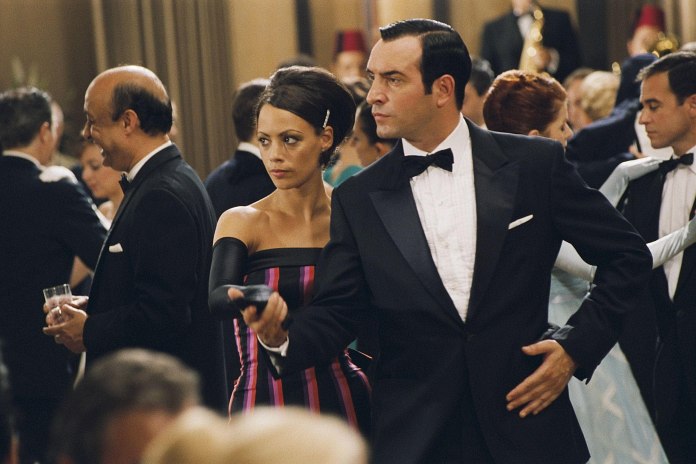
Before James Bond, there was OSS 117, a secret agent character created by French author Jean Bruce. The first OSS 117 novel was written even before Ian Fleming’s Casino Royale. Jean Bruce’s wife and children continued the series, writing a total of 167 more novels.
The most recent film adaptations of OSS 117, starring Jean Dujardin, known for his role in The Artist and other French films, take a comedic approach. In OSS 117: Cairo, Nest of Spies, the story revolves around La Bath’s mission to find a missing agent in Cairo. OSS 117: Lost in Rio follows La Bath’s pursuit of escaping Nazis in South America, while OSS 117: From Africa with Love explores political conflicts in an unspecified area of Sub-Saharan Africa.
The franchise cleverly mocks the spy movie genre, including James Bond and its own source material, while also poking fun at old-fashioned filmmaking techniques. Dujardin’s background as a stand-up comic adds to the slapstick humor. Although La Bath is charming, he is portrayed as ignorant, intolerant, and completely unaware of his own flaws beyond his sophisticated appearance.
6. Richard Harris: The ‘Man Called Horse’ Trilogy
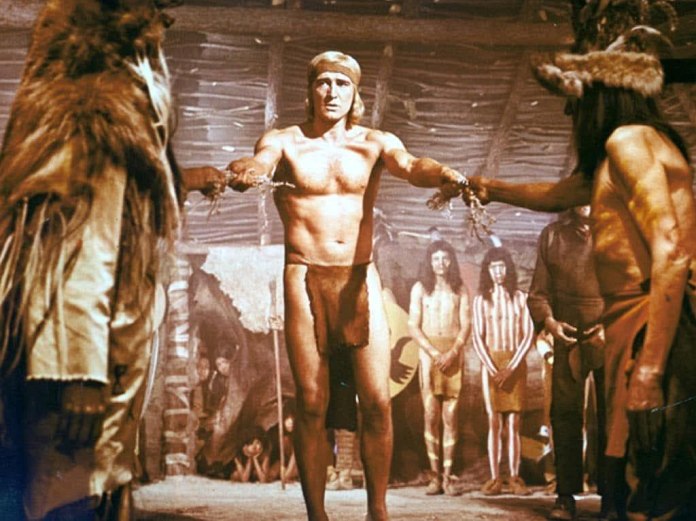
Richard Harris’s career is too vast and robust to be overshadowed by his hell-raising exploits. He has taken on leading roles and weighty supporting characters in numerous films, including This Sporting Life, Cromwell, The Field, Unforgiven, Gladiator, and the Harry Potter franchise. One notable film in his portfolio is A Man Called Horse, where Harris portrays Englishman John Morgan, captured and enslaved by the Sioux. Throughout the film, Morgan gradually earns their respect and finds his place among them. A Man Called Horse, a co-production between Mexico and the United States, was seen by some as an authentic portrayal of an indigenous and historic way of life, while others disagreed. The ritual initiation scene in particular left a lasting impression on many viewers.
In this scene, Harris captivates audiences without uttering a word. He portrays the pain and sacrifice of his character as his flesh is broken and hooked with eagle claws, and he is hoisted into the air and spun around. Despite the diminishing returns of the sequels, such as The Return of a Man Called Horse and Triumphs of a Man Called Horse, where Morgan returns to the Sioux to help them reclaim their land and later becomes a chief with a son who falls in love with a girl from another tribe, Harris’s performance remains sincere and rebellious, aligning with his notorious persona.
7. Frank Sinatra: The Tony Rome Franchise
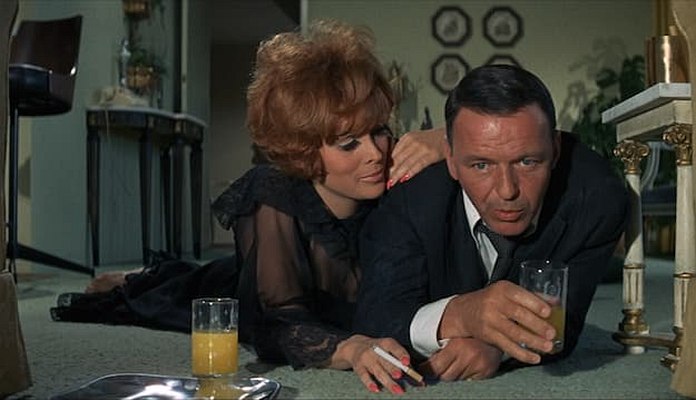
Frank Sinatra, known for his singing career and film credits, showed his acting skills beyond musicals in movies like The Man with the Golden Arm and The Manchurian Candidate. In Tony Rome and its sequel Lady in Cement, Sinatra takes on the role of the title character, adapted from Marvin Albert’s Tony Rome private eye novel series. It’s worth mentioning that Sinatra also worked with director Gordon Douglas on The Detective during the same time and in a similar genre, although it’s not a direct sequel.
The Tony Rome films perfectly align with Sinatra’s strengths during this period, combining the noirish PI film genre of his heyday with the more daring counterculture of the 1960s. As Sinatra entered his 50s in the latter half of the 1960s, he capitalizes on his seasoned charm and public image in the role of Rome. He portrays Rome with a nonchalant attitude, an informal approach to solving crimes, and an appetite for both seedy characters and young women dressed provocatively.
8. Warwick Davis: The ‘Leprechaun’ Franchise
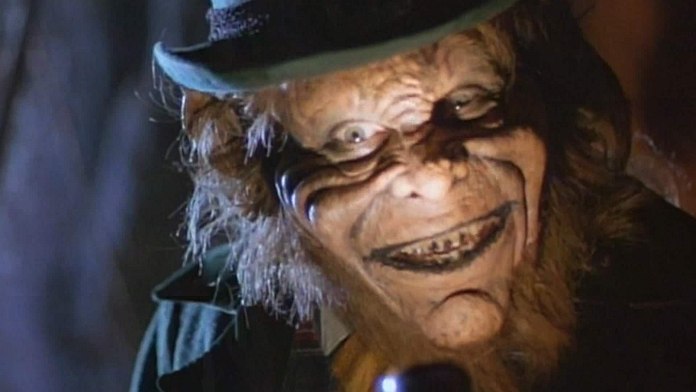
Warwick Davis has played a significant role in changing the fate of many people of short stature in the show business industry. In the past, individuals with dwarfism were often typecast as background characters or portrayed in jester-like roles in fantasy films. However, Davis broke the mold and gained recognition through his roles in movies such as Willow, the British TV comedy Life is Short, and the Star Wars and Harry Potter franchises. Although some of his performances involved wearing masks or prosthetics, his talent still shone through.
Furthermore, Davis co-founded a successful talent agency that represents both short and very tall actors. This agency has provided opportunities for individuals who may have otherwise been overlooked in the industry.
However, not all of Davis’s projects have received the same level of recognition. The Leprechaun films, which went straight to video, fall into this category. The franchise, known for its comedy horror genre, may not be everyone’s cup of tea, especially for those from Ireland who may find the supernatural Irish clichés overwhelming. In these films, Davis portrays the mischievous leprechaun who terrorizes people for interfering with his possessions.
In the first Leprechaun film, which marked Jennifer Aniston’s movie debut, the leprechaun travels from Ireland to the Midwest to retrieve his stolen gold. In the second installment, he searches for a wife in Los Angeles. In Leprechaun 3, he embarks on a chase through Las Vegas to retrieve one of his gold coins. Leprechaun 4: In Space sees him pursuing another potential wife, this time an alien, and even taking on the guise of a sexually transmitted infection. In Leprechaun 5: In the Hood, he takes a break from his quest for his magic flute to indulge in some weed with co-star Ice-T. Finally, Leprechaun 6: Back 2 tha Hood blends elements from the first and fifth films.
Although Davis left the franchise before the reboot, Leprechaun: Origins, and the sequel to the original film, Leprechaun Returns, his contributions to the series will always be remembered.
9. Steve Coogan: The ‘Trip’ Franchise
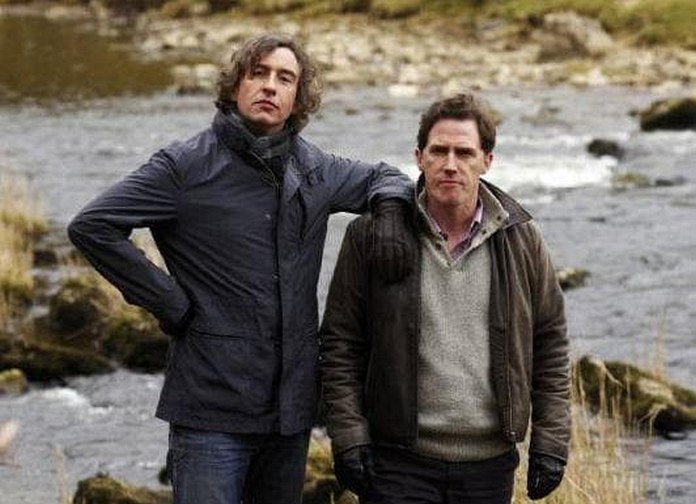
The Trip series began as half-hour TV episodes in Britain but was later edited into feature films for other countries. The show’s success heavily relies on the talent and chemistry between its two main actors, Steve Coogan and Rob Brydon. Coogan and Brydon, long-time collaborators of director Michael Winterbottom, play fictionalized versions of themselves. The story revolves around their restaurant review tour of northern England in The Trip, and later expands to include trips to Italy, Spain, and Greece in the sequels.
In each location, Coogan and Brydon engage in improvisation, engaging in friendly competition through celebrity impressions and discussing various films and TV shows. The heart of the series lies in the conversations that take place during elaborate meals. Although much is said, the true connection between the leads is often left unspoken, but the audience learns a great deal about their characters. Coogan and Brydon’s impressions reflect their shared love for pop culture and the constant desire to outdo each other.
Amidst the comedic moments, there are also quieter, introspective scenes. Coogan, a well-known figure in British television and Hollywood, often displays a melancholic and insecure side, grappling with the challenges of fame. These moments provide a glimpse into the complexities of Coogan’s character, adding depth to the series.
10. John Wayne: The ‘Three Mesquiteers’ Franchise
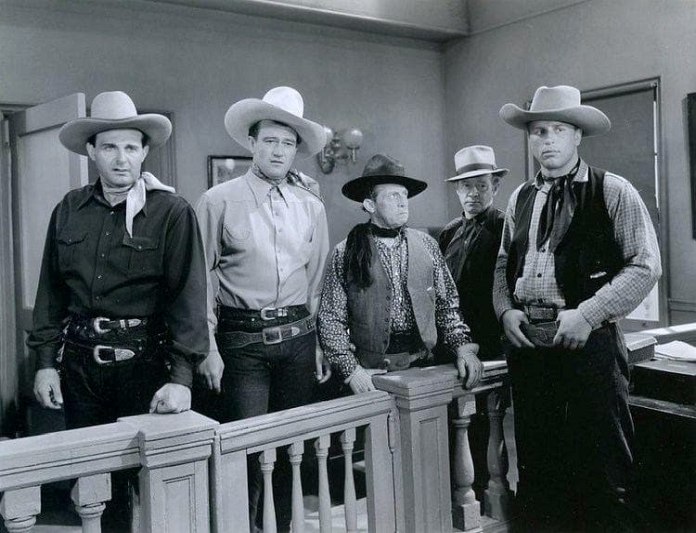
Marion Morrison, known by his stage name John Wayne, became the epitome of a tough guy in the 20th century. His nickname, The Duke, was just as straightforward and memorable as his stage name. These monikers perfectly captured Wayne’s onscreen persona: a casually heroic figure with a unique walk and a laid-back drawl.
Before becoming a prominent actor, Wayne started his career in the film industry as a props guy and an extra. He gradually worked his way up, taking on bit-part roles in both silent and talkie films. Eventually, he landed a leading role in the Three Mesquiteers franchise, a series of B-movie westerns based on books. Wayne played the role of Stony Brooke, one of the three cowboy partners who embarked on business and adventure together.
Among the numerous successful Three Mesquiteers movies that Wayne starred in, two stand out. Wyoming Outlaw tackled the farming crisis caused by the wheat demand during World War I, while Santa Fe Stampede portrayed the three heroes battling a large group of corrupt city officials and lawbreakers using their fists. Both films were incredibly popular.
All of Wayne’s appearances in The Three Mesquiteers series were directed by George Sherman, who continued to work with Wayne until his final film, Big Jake, in 1971. Big Jake turned out to be a major success for The Duke and Sherman, marking the end of their collaboration.
11. Malcolm McDowell: The Mick Travis Franchise

Director Lindsey Anderson’s trilogy, consisting of three films made between the 1960s and 1980s, may not share a common plot. However, there is one constant that ties them together – the character of Mick Travis. Portrayed brilliantly by Malcolm McDowell, Travis effortlessly adapts to the ever-changing scenes and situations.
The first film, If…, presents an exhilarating schoolboy rebellion against authority, embodying the ultimate teenage fantasy of anti-establishment sentiments. McDowell’s extraordinary and provocative performance in this movie caught the attention of Stanley Kubrick, leading to his iconic role in A Clockwork Orange. This film propelled McDowell towards stardom and served as an inspiration for a new generation of passionate British actors.
In line with Anderson’s unconventional approach to filmmaking, the sequels, O Lucky Man! and Britannia Hospital, deviate from traditional linear storytelling and continuity. O Lucky Man! follows Travis’s journey as a coffee salesman, experiencing both success and downfall within the crumbling British Empire. Britannia Hospital, on the other hand, sees Travis exploring the hypocrisy within the healthcare system amidst a backdrop of civil unrest. Together, these films effectively convey the irrationality of the British class system, a theme close to Anderson’s heart.